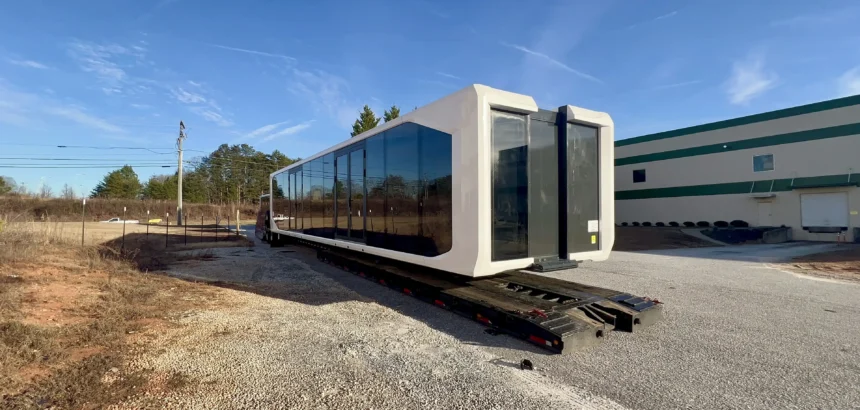In today’s fast-paced construction industry, your equipment’s reliability can make or break a project. This is especially true for trailers, which are essential for transporting materials, machinery, and waste. Ensuring your trailer is built to withstand heavy use is crucial not only for efficiency but also for safety and cost-effectiveness.
Understanding the Importance of Durable Trailers
The construction environment is tough, characterized by heavy loads and rough terrains. Trailers used in such settings must meet high durability standards to endure these conditions. Investing in a strong trailer can significantly reduce downtime and maintenance costs, translating into greater profitability for your projects.
When selecting a trailer, consider its load capacity. A trailer designed for heavy use must accommodate substantial weight without compromising structural integrity. Seek trailers made from robust materials like steel, which offer a balance between strength and weight. Additionally, check the trailer’s suspension system, as it plays a critical role in maintaining stability and protecting the load during transit.
Material Matters in Trailer Construction
Materials form the backbone of a construction trailer’s durability. Steel and aluminum are popular choices, each offering distinct advantages. Steel provides unmatched strength and is often preferred for its ability to handle extreme conditions. However, it’s heavier, which can affect fuel efficiency and ease of maneuverability.
Aluminum, on the other hand, is lighter and resistant to rust. This makes it a suitable choice for trailers frequently exposed to wet or corrosive environments. When choosing between these materials, consider the specific demands of your work sites and transport needs. Some manufacturers offer hybrid designs combining both materials to optimize performance.
The Role of Design in Supporting Heavy Loads
A trailer’s design is as crucial as the materials used. Look for trailers with reinforced frames and cross members, which provide additional support for heavy loads. The frame should be welded rather than bolted to enhance strength and reduce the risk of joint failures.
Consider trailers with customizable features such as adjustable axles or hydraulic lifts, which can improve adaptability and functionality on various job sites. A well-designed trailer not only handles more weight but also operates more efficiently, minimizing wear and tear over time.
Choosing the Right Tires and Suspension
Tires and suspension systems are pivotal in ensuring your trailer performs well under stress. Heavy-duty tires are essential for trailers that frequently transport large loads, providing the necessary grip and durability. Consider the tire’s ply rating, which indicates its load-carrying capacity.
The suspension system should complement the tires, absorbing shocks and vibrations that can damage both the trailer and its cargo. Air suspensions are known for their smooth ride, making them an excellent choice for fragile or sensitive loads. However, leaf spring suspensions are durable and cost-effective, suitable for general construction purposes.
Maintenance Practices for Longevity
Routine maintenance is key to extending the life of your trailer. Regularly inspect the frame, tires, and suspension components for signs of wear or damage. Address any issues promptly to prevent minor problems from escalating into costly repairs.
Lubrication is another critical aspect of maintenance. Ensure moving parts such as hinges and axles are properly greased to reduce friction and prevent rust. Keeping your trailer clean, especially after exposure to mud or salt, will also protect it from corrosion and deterioration.
Customizing Trailers for Specific Needs
Customization allows your trailer to fit perfectly with your operational requirements. Whether you need additional tie-down points, specialized ramps, or enhanced lighting, tailoring your trailer can significantly boost its utility and efficiency.
When considering customizations, consult with professionals who understand the intricacies of trailer design. This ensures modifications are structurally sound and compliant with safety regulations. Custom solutions often result in better productivity and, ultimately, cost savings.
The Impact of Technology on Trailer Construction
Technological advancements have revolutionized trailer design and functionality. Modern trailers often incorporate smart technologies such as GPS tracking, automated brakes, and even remote monitoring systems. These innovations enhance safety, improve operational efficiency, and provide valuable data for fleet management.
For instance, GPS tracking can help monitor trailer location and usage patterns, aiding in logistics planning and theft prevention. Similarly, automated braking systems can reduce accidents by providing additional control during emergency stops. Investing in technology-equipped trailers can offer a competitive edge in the construction industry.
Setting Standards for Safety and Compliance
Safety should be a top priority when selecting and using construction trailers. Ensure your trailer meets all industry standards and regulations, including those related to load limits, braking systems, and lighting. Compliance not only protects your employees but also minimizes liability and potential fines.
Conduct regular safety audits and provide training for operators to ensure they are familiar with the trailer’s features and safe operating procedures. Safety-conscious practices foster a better working environment and contribute to project success.
Conclusion
Investing in a strong construction trailer is a strategic move that pays off in increased efficiency and reduced costs. By considering factors such as materials, design, and technology, you can ensure your trailer withstands the rigors of heavy use. For businesses looking to upgrade or expand their fleet, exploring options like dump trailers in Utah can offer robust solutions tailored to specific needs. Prioritize durability and reliability to keep your projects on track and your team safe.


